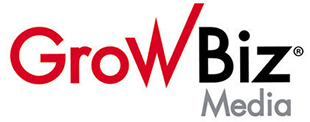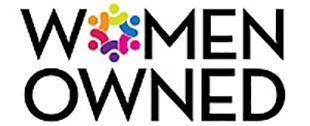Alcohol abuse is becoming more and more prevalent in the workplace, especially with the introduction of remote work and greater employee freedom and anonymity.
According to research revealed in the 2018 National Survey on Drug Use and Health, about 70% of adults with a substance use disorder are employed, and almost 9% of employed adults have a drug or alcohol use disorder.
With stress levels mounting, mental health impacts from the COVID-19 pandemic, and virtual or in-person happy hours encouraged in many workplaces, it’s no wonder why so many people across the nation are finding it more difficult to navigate their relationships with alcohol.
This alcohol consumption can impact your employees’ work performance. Below, we’ll discuss a few of these impacts and how employers can be more aware of alcohol abuse issues in the workplace.
1. Missing Deadlines
Missing a single deadline does not necessarily mean your employees are abusing alcohol. However, if an employee is missing deadlines consistently, or more often than they usually would, this may point to a deeper issue.
Workers may miss a deadline at work for a number of reasons regarding alcohol consumption. This might include:
- Feelings of depression or anxiety exacerbated by alcohol consumption getting in the way of work performance
- Impaired sense of time, responsibilities, memory, or mobility due to drinking during work hours
- Feeling uncomfortable symptoms of alcohol hangover during work, such as headache and nausea
Issues such as missed deadlines are all relative when you look at the isolated concern. However, when you look at the bigger picture — employees who are drinking, showing up to work on low energy or hungover most days, and missing deadlines as a result — you may be able to put the pieces together to see the larger problem.
2. Being Disconnected
People who develop issues with alcohol tend to withdraw from family, friends, and coworkers. This may be particularly evident if one of your employees is usually more social with their coworkers but no longer feel the desire to stay connected, such as choosing to hang back instead of participating in a group outing for lunch.
Alcohol addiction is isolating, and it often makes people feel like they’re on the outside looking in. A decrease in motivation to socialize, lack of confidence speaking up in meetings, or a general sense of disconnectedness can reveal a problem with alcohol.
This does not mean that if an employee is not social, they have an alcohol addiction. Many people, such as those who are introverted or naturally quieter, may not socialize and communicate frequently with you as the employer or coworkers.
The important thing is to note any change in behavior. If a minimal level of communication has dropped to none, you might want to take a closer look at factors such as alcohol abuse.
3. Taking Long Absences from Work
It’s normal for employees to use their paid time off (PTO) to go on vacation, spend time away from work, or take a mental health day as needed. However, if you notice that someone is taking longer absences from work, this is important to evaluate.
A person with a drinking problem might show up late to work or miss work altogether because of physical or mental health issues resulting from alcohol consumption. If one of your workers has been missing a lot of work lately, you might want to have a conversation with them to see how they’re doing and learn why they’ve been absent.
Factors such as high levels of stress, difficulty managing emotions, trouble staying on top of physical health due to drinking, and others can all be reasons why a person might miss larger periods of work when drinking.
Ask if there’s anything you can do to help them with work-related issues that may be contributing to poor mental health, such as time management or workload.
4. Making Mistakes Frequently
Alcohol can have major negative implications on a person’s judgment and coordination skills. And when it’s used long-term, alcohol may cause permanent damage to a person’s brain.
This decrease in cognitive and motor functions can greatly impact a person’s work performance. Alcohol impairment may be especially dangerous for people with interactive jobs involving the use of vehicles, heavy machinery, etc.
If you find that an employee has been making mistakes more frequently, been involved in more accidents on the job, or has experienced mental confusion regularly, alcohol consumption may be impacting their work.
5. Worsened Personal Hygiene
Personal hygiene can often be an indicator of problem alcohol use. This is because as alcohol consumption increases, the desire to take care of yourself usually decreases.
You might find that an employee with an alcohol problem may put less effort into their appearances, such as wearing dirty clothes, forgetting certain pieces of their uniform, or some other aspect of personal upkeep.
Drinking, becoming intoxicated, and dealing with the aftermath of alcohol withdrawal can impact their ability to perform regular hygiene tasks, such as brushing their teeth, bathing, or combing their hair. This can be the result of co-occurring mental health concerns that are worsened by alcohol use, low self-esteem, or a lack of motivation, all of which are associated with heavy alcohol use.
It’s important to note that professionalism does not always equate to nicely kept hair and fresh clothes. However, if you notice that an employee is no longer performing acts of personal self-care that they did before, there may be a problem with substance use.
What Employers Can Do
Employers can work at creating a safe and open space for their employees to speak up and address concerns as needed. Many people may attempt to hide a problem with alcohol because they fear negative repercussions from superiors or judgment from coworkers.
Model healthy communication and honesty yourself, which will encourage employees to do the same. If possible, employers may choose to have quarterly check-ins with their employees to learn more about how they’re doing mentally and determine what practices may be implemented to improve the health of the team.
Make sure your employees understand that honesty will not be punished. Have conversations with employees that are free from ridicule and focused on practical steps moving forward.
Sarah O’Brien is an Addiction Specialist with Ark Behavioral Health.
Alcohol abuse stock photo by Prostock-studio/Shutterstock



